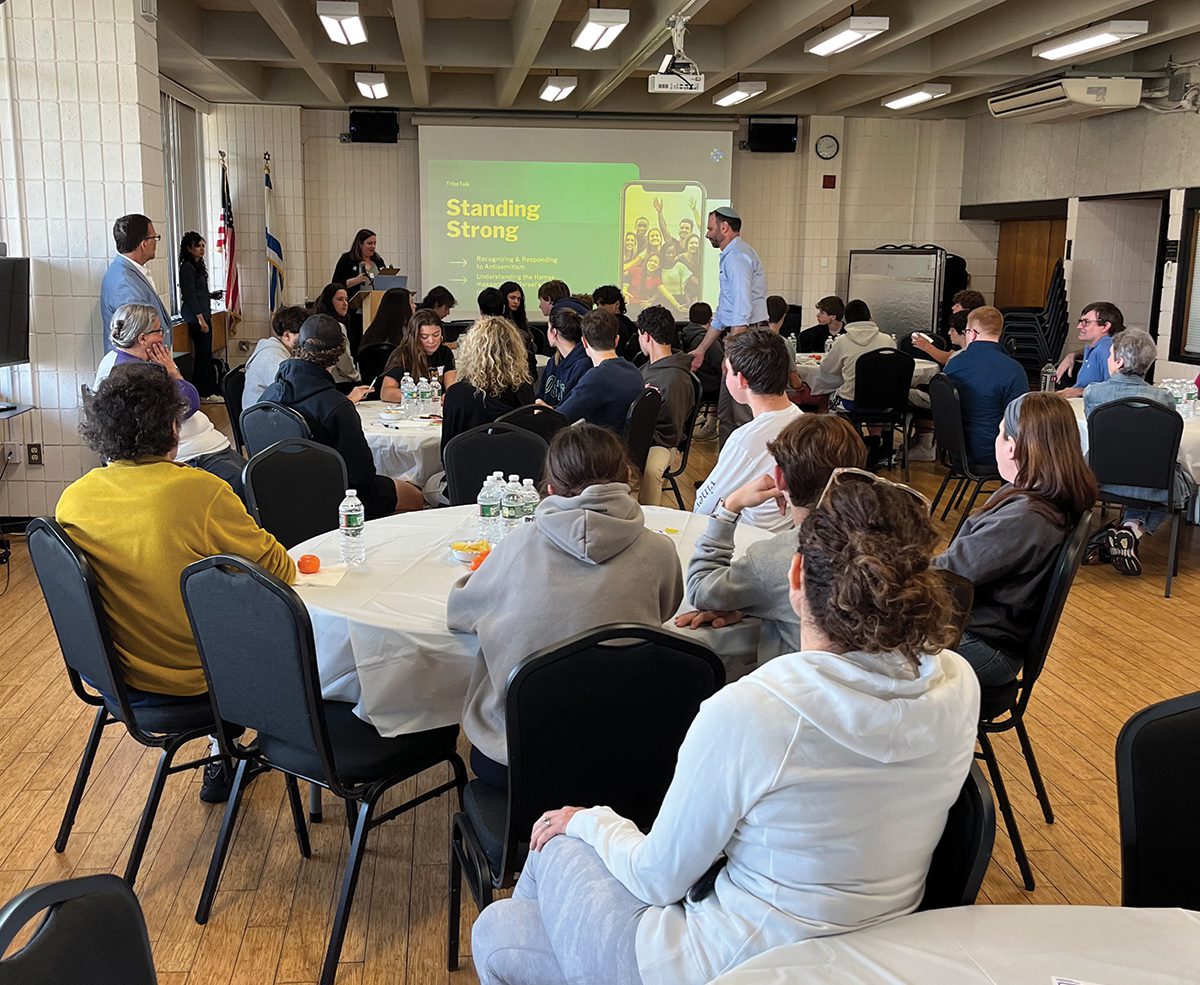By Melissa Garlick, Associate Vice President, CJP’s Center for Combating Antisemitism
In the weeks and months after the attacks of October 7, 2023, I received an outpouring of calls from Jewish employees in secular workplaces looking for support, guidance, and a space to feel seen as antisemitism surged and our community grieved. Some wanted their employers to be more public and outspoken in their solidarity, but the vast majority wanted to be able to talk about what they were experiencing in a safe and supportive environment. CCA has since launched the first-ever local effort to combat antisemitism and foster connection in the workplace, beginning with the first research of its kind to better understand the experiences of Jewish employees in the workplace; trainings for corporate leaders and workplaces on antisemitism; and the creation of a network of Jewish Employee Resource Group (J-ERG) leaders across Boston.
We uncovered two major trends in implementing this work:
- Jewish employees want to connect. Jewish employees increasingly want and need to connect as Jews with others in the workplace, especially since October 7. The recently released Boston findings of the Jewish at Work 2025 survey, sponsored by CCA and conducted by The National Jewish Center for Learning and Leadership (Clal) found that 68% of participants in the survey joined J-ERGs after the October 7 attacks and 75% of Boston respondents felt it was important to bring their full Jewish selves to work. The data tracks the personal anecdotes I heard from community members: In a climate of increased antisemitism and fear for the Jewish community, Jewish employees generally want to feel connected and seen in the workplace. J-ERGs can provide a valuable space for that connection, to celebrate and educate about cultural experiences, and to advance efforts for education and belonging. This is why CCA is supporting this growing movement through our new microgrant opportunity and an upcoming convening for leaders of Jewish ERGs.
- Opportunities for Boston employers and corporate leadership to take internal organizational actions. We have many allies and potential allies in business and workplace leadership in Boston who displayed solidarity with the Jewish community this year. But the same study above that showed 75% of respondents felt it was important to bring their full Jewish selves to work also reported that only 56% felt supported by their employer to express their Jewish identity. As CCA also seeks to build deeper relationships with business and corporate leadership in Boston, we are also strengthening partnerships with civic leaders to address this critical opportunity. Through education, training, and relationship building, employers and leaders can seek to learn more about Jewish identity, contemporary antisemitism, and about the needs of their Jewish employees in their organization and then take internal actions to address them. Through a multi-year partnership with training partners at Project Shema, CCA is helping to bring antisemitism training and education to corporate leaders and their staff.
We all need to join together in this work. I invite you to learn more through our newsletter this month, CCA’s WhatsApp, and on our landing page for Jewish ERGs.




